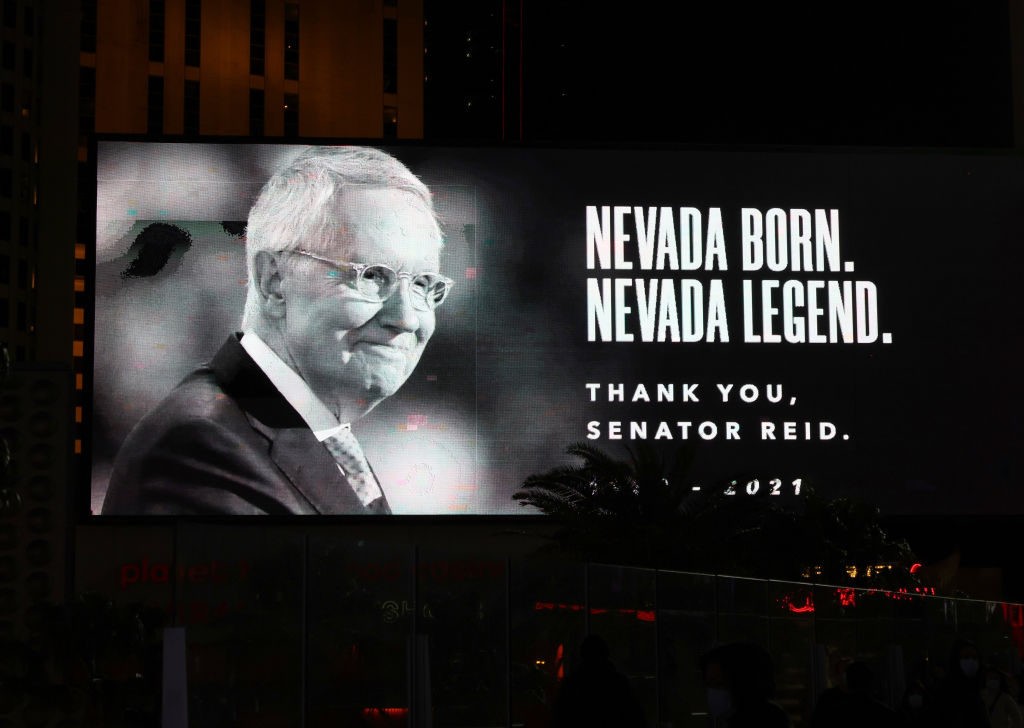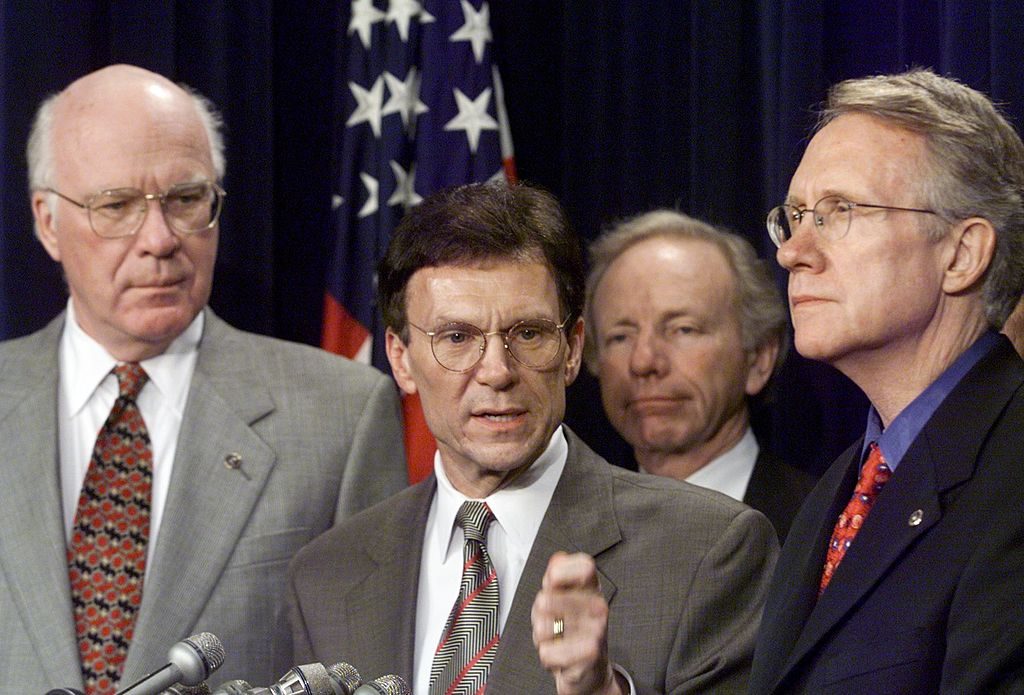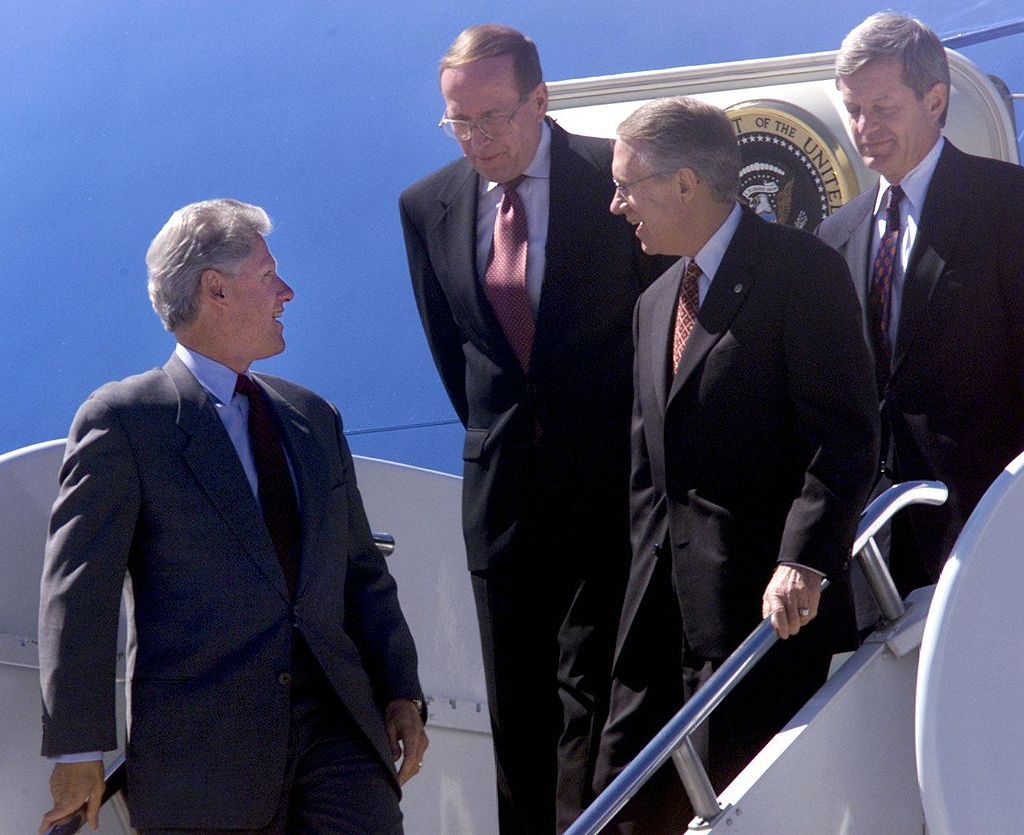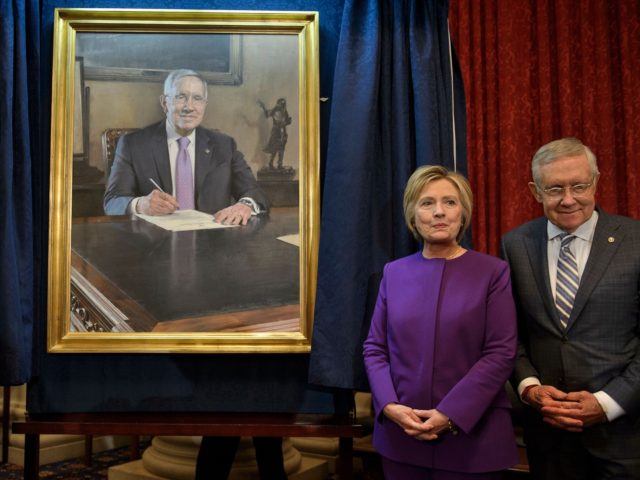Democrats are collectively lamenting the death of their former Senate leader, Harry Reid from Nevada — but are also quietly burying his vital, pre-2012 role as a populist, pro-American opponent of GOP-promoted labor migration.
“I am sponsoring a bill in the Senate to reduce immigration– [both] legal and illegal,” Reid wrote in a 1994 article for the Los Angeles Times. He continued:
Most politicians agree that illegal immigration should end. My legislation would double border patrols and accelerate the deportation process for criminals and illegal entrants. But many lawmakers feel that lowering legal immigration is too dicey. This is a cop-out.My legislation calls for a reduction of legal immigrants from the current level of about 1 million admissions a year to approximately 325,000. Even that more realistic level means 25,000 newcomers entering every month, looking for jobs, housing and education.[….]The real injustice to future Americans would be to do nothing. America is proud of its immigrant tradition. This tradition should be reconciled with our responsibility to create a better country in which to live. If we do not take responsible steps today, we will be forced to take radical and sadly preventable action only a decade from now.
As a politician, “he was perfectly in tune with his time — unfortunately, he would be considered too far to the right given today’s orthodoxy,” said Kevin Lynn, founder of U.S. Tech Workers, which opposes the Fortune 500’s use of visa workers.
In 2007, Reid played a key role in knifing the cheap-labor amnesty bill pushed by establishment Republicans and GOP President George W. Bush.

A digital sign at Planet Hollywood Resort & Casino displays a tribute to former Democratic Nevada Sen. Harry Reid on December 29, 2021, in Las Vegas, Nevada. (Ethan Miller/Getty Images)
Reid’s dagger was an amendment drafted by Democratic populist Sen. Byron Dorgan (D-ND), which got 37 votes from Democratic Senators. Politico reported in June 2007:
The top question at the Capitol this morning: Why was Sen. Byron Dorgan (D-N.D.) given a second crack at his immigration amendment that was rejected two weeks earlier and tagged as a potential deal breaker?
One answer: Until he got a vote, Dorgan threatened to slow down the process by objecting to any unanimous consent agreements offered by bill managers to push the measure toward a final vote, according to Senate aides. “I had a right to get a vote on my amendment,” Dorgan said this morning.
Another reason: A majority of the Democratic caucus, including Majority Leader Harry Reid (D-Nev.) and the rest of the Democratic leadership, wanted to see the Dorgan amendment approved.
[…]
[Before the vote] Democrats convened a caucus meeting this morning to discuss strategy. As Reid emerged from the meeting, the majority leader tapped Dorgan on the back, smiled and said, “excellent.”
Reid came from the small town of Searchlight in Nevada, and he “understood [government-directed migration is] class warfare, and that immigration was one of the tools used by the Chambers of Commerce to increase the supply of labor, to lower wages and benefits, and also create greater insecurity among wage-earners,” said Lynn, adding:
Leading Democrats in the 1980s and 1990s understood the consequences of unbridled immigration when it came to the supply of labor and how it impacted wage earners …. So what Harry Reid was addressing was really the the class warfare as it was being played out against people who earned wages, the productive class.
But Reid changed as the old guard in the Democratic Party was gradually overcome by the university-trained progressives. The young progressives were primed to establish lucrative alliances with the West Coast tech companies and the East Coast investors. They wanted to believe that more immigrant labor was good for both Silicon Valley and poor Latinos.
When President Barack Obama was reelected in 2012, Reid became a loud advocate for amnesty. In 2013, he pushed the “Gang of Eight” corporate-giveaway amnesty through the Senate — amid much-entwined fake and real opposition from business-funded GOP Senators.

U.S. Senate Minority Leader Tom Daschle (D-SD) (2nd-L) holds a press conference after Democrats plan to depose witnesses lost to the Republicans 28 January at the U.S. Capitol in Washington DC. Standing with Daschle are senators Patrick Leahy (D-VT) (L), Joseph Lieberman(D-CT) (2ndR) and Harry Reid (D-NV) (JOYCE NALTCHAYAN/AFP via Getty Images)

(L-R) U.S. President Bill Clinton is accompanied by U.S. Senators Richard Bryan (D-NV,) Harry Reid (D-NV) and Max Baucus (D-MT) at McCarran International Airport to attend the Democratic Senatorial Campaign Committee luncheon fundraiser 01 October 1999 in Las Vegas, NV. (TIM SLOAN/AFP via Getty Images)
But that amnesty was blocked by the cautious Republican Majority Leader, Rep. John Boehner (R-OH), who recognized that the GOP’s base was increasingly opposed to mass migration. So Boehner suppressed his pro-migration deputies — including Rep. Paul Ryan (R-WI) — setting the stage for a New York TV personality to pick up the immigration-reform key to the 2016 White House.
“As we head into 2022, polling indicates that just one year into the Biden administration and full control of Congress by the leftward lurching [pro-migration] Democrats … the [Democratic] party is likely to pay a heavy price in November,” according to a December 29 post by Ira Mehlman, at the Federation for American Immigration Reform.
“Perhaps if Harry Reid were still around, he might have recognized the changing tides and adjusted course once again, because, for him, political power was always the ultimate objective.”

COMMENTS
Please let us know if you're having issues with commenting.